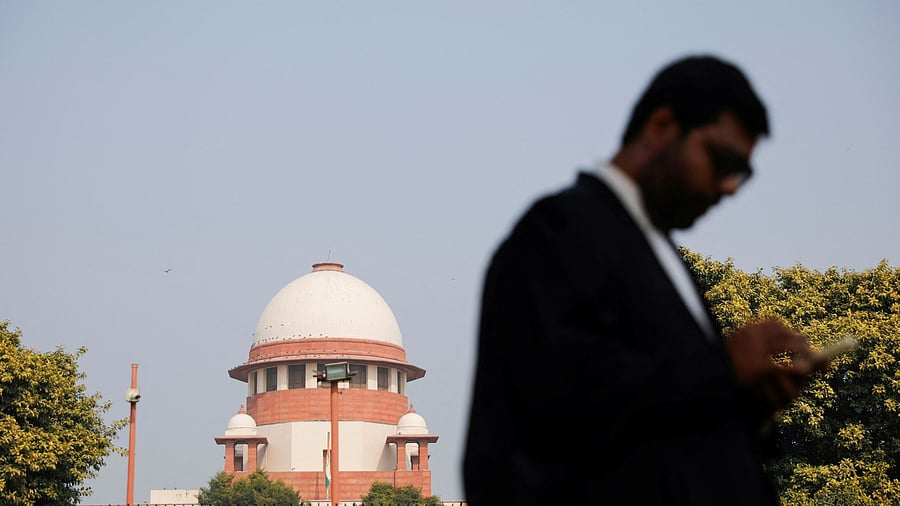
Supreme Court in New Delhi
Credit: Reuters Photo
New Delhi: The Supreme Court has said the law has been settled in the case of a convict in Bilkis Bano case that a remission plea can be decided by the state where the offence has taken place instead of the state where the trial has been shifted due to exceptional circumstances.
Dealing with a plea by a convict in the 2003 poetess Madhumita Shukla murder case, a bench of Justices Aniruddha Bose and Augustine George Masih cited a coordinate bench decision in the case of 'Radheshyam Bhagwandas Shah Alias Lala Vakil Vs State of Gujarat and Another' (2022).
In the previous case, the court had noted once the crime was committed in the State of Gujarat, after the trial had been concluded and judgment of conviction came to be passed, all further proceedings have to be considered including remission or premature release, as the case may be, in terms of the policy which is applicable in the State of Gujarat where the crime was committed and not the State where the trial stands transferred and concluded for exceptional reasons under the orders of this Court.
Petitioner Rohit Chaturvedi was aggrieved by the rejection of his remission plea by the Uttarakhand government.
In fact, the trial in Madhumita Shukla murder case of 2003 involving former Uttar Pradesh Minister Amarmani Tripathi was transferred by the Supreme Court to Dehradun from Lucknow. The accused were held guilty by the trial court. The High Court as well as the Supreme Court has upheld the conviction.
The remission plea was filed by the petitioner before the Union government which was transferred to the Uttarakhand government.
In his argument, he contended the Uttar Pradesh would have been the proper authority for considering the remission plea as the offence had occurred within that state.
"This being the position of law, the entire exercise conducted by the State of Uttarakhand appears to be without jurisdiction and hence not sustainable under the law," the bench said, agreeing to the submission.
The court directed the Uttarakhand government to send the file to the Uttar Pradesh within three weeks.
It also ordered the UP government to take a decision within eight weeks without influenced by the decision of the Uttarakhand government.
